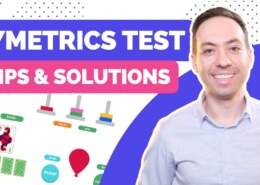Behavioral skill games have become a major part of modern hiring, replacing traditional questionnaires with engaging, neuroscience-based tasks. Designed to measure how you think, react, and adapt, these interactive assessments may look simple, but they can still create pressure for many candidates. Confidence plays a huge role in how well you perform not just your cognitive strengths. In this blog, you’ll learn practical ways to prepare mentally, physically, and strategically so you can approach these assessments with clarity and self-assurance.
Understanding Behavioral Skill Games
Behavioral skill games aim to evaluate cognitive traits, emotional responses, attention span, memory, and decision-making style. They offer employers insight into how you behave in real scenarios, not just how you respond on paper. Unlike traditional tests, they don’t focus on right or wrong answers but on patterns of behavior. Many candidates feel nervous because they mistake these activities for academic exams. This is where pymetrics games practice can help you understand the general format and reduce anxiety, even though you can’t memorize answers. Once you understand what these games measure and why companies use them, the entire process becomes far less intimidating.
Why Confidence Plays a Key Role in Performance
Your confidence level directly influences your accuracy, reaction time, and decisions during behavioral skill games. When you feel calm, your brain processes information more efficiently and you react more naturally exactly what recruiters want to see. Overthinking often causes hesitation, unnecessary stress, or scores that don’t reflect your true abilities. It’s important to remember that employers don’t expect perfection. They’re simply looking for a consistent behavioral profile. Confidence helps you show your authentic strengths rather than letting nerves get in the way.
Steps to Build Confidence Before Taking the Games
Learn the Game Format Early
The more familiar you are with the structure of the games, the less anxious you’ll feel. Many candidates get stressed simply because they don’t know what to expect. Take time to explore examples, watch demonstrations, or try similar cognitive exercises. Familiarity doesn’t just reduce fear it improves your sense of control and helps you stay focused during the real assessment.
Strengthen Your Core Skills Gradually
Improving your cognitive foundation doesn’t require complicated training. Simple daily exercises can help you sharpen focus, memory, and decision-making. Activities like puzzles, reaction-time apps, and memory games can strengthen your mental agility. Even basic habits like reading, problem-solving exercises, and quick-thinking challenges can increase your comfort with fast-paced tasks. The goal is not to “hack” the games but to make your mind more adaptable and resilient.
Create a Calm, Prepared Environment
Your surroundings during the assessment matter more than you think. A noisy room, poor lighting, or constant interruptions can dramatically affect your performance. Before you begin, set up a quiet space where you won’t be disturbed. Make sure your internet connection, device settings, and sound levels are stable. A clear and organized environment naturally boosts confidence by reducing distractions and helping your mind stay centered on the task.
Manage Stress Using Proven Techniques
Stress is one of the biggest barriers to performing well. Breathing exercises, short meditation sessions, or even light stretching can lower your heart rate and sharpen your concentration. Remind yourself that these games measure natural tendencies, not academic intelligence. Positive affirmations such as “I am prepared” or “I can handle this calmly” can shift your mindset from self-doubt to self-trust. In the middle of preparation, many candidates find that building calmness becomes just as important as practicing the games themselves, making this a crucial part of long-term confidence building.
Use Practice Tools the Right Way
This is where many people slip into ineffective habits. Practice tools are helpful only when used to understand patterns, not to “beat” the system. Over-training leads to unnatural responses, which employers may interpret negatively. Instead, use practice to become familiar with timing, pacing, and decision-making flow. This balanced approach allows your true strengths to shine through during the real assessment. (Keyword placement: pymetrics games practice is already placed earlier; this paragraph marks the midpoint of the blog.)
What to Avoid Before the Assessment
Many candidates unintentionally undermine their confidence with poor preparation habits. One of the most common mistakes is last-minute cramming, which increases mental fatigue and reduces clarity during the test. These games require quick instincts not memorization. Another mistake is relying on misleading online advice that tries to “trick” the system. This often creates unnecessary stress and unrealistic expectations. Finally, avoid taking multiple practice assessments back-to-back. Without breaks, your concentration will drop, and your frustration may rise. The goal is steady preparation, not overload.
Final Checklist for a Confident Test Day
Before starting the assessment, run through a simple checklist to keep yourself grounded. Make sure your environment is quiet, your device is functioning properly, and your internet connection is stable. Take a few deep breaths and remind yourself that the objective is not perfection just authentic performance. Keep water nearby, maintain a relaxed posture, and focus on each task one step at a time. A checklist helps organize your thoughts and eliminates last-minute panic.
Conclusion
Confidence is not about having all the answers it’s about preparing wisely and trusting your natural abilities. Behavioral skill games are designed to reflect who you are, not test your academic knowledge. With smart preparation, a calm mindset, and an understanding of how these games work, you can walk into the assessment feeling ready, composed, and empowered. Trust the process and trust yourself, and you’ll perform at your best.
